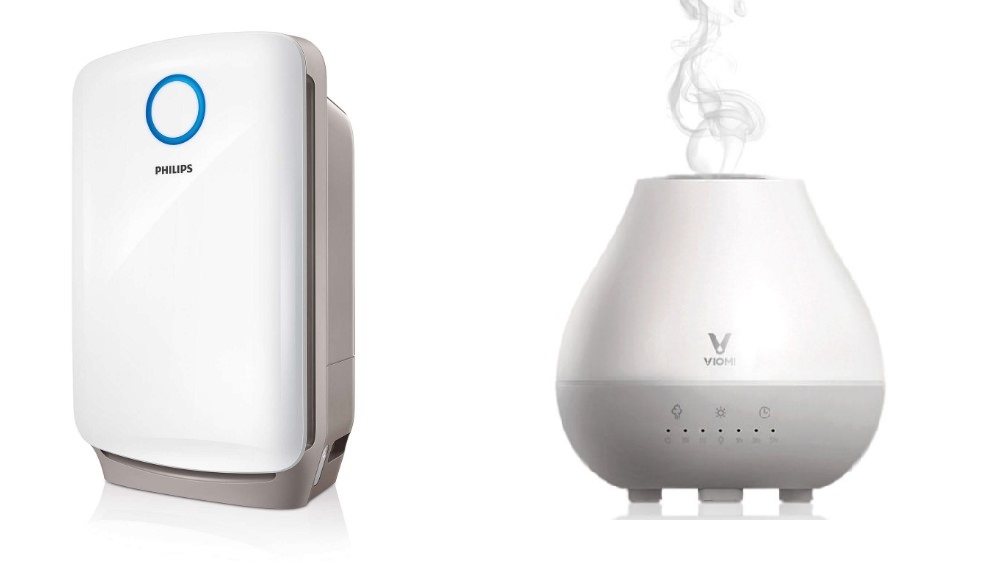Over the years, the annual Air Quality Index (AQI) has indicated that the quality of air is on the rise. However, human reactions to dust and allergies have remained constant. In arid areas and during certain seasons, the moisture content is low.
The two most commonly used devices to control the quality of air in these situations are humidifiers and air purifiers.

Contents
Air purifier vs humidifier: application
An air purifier uses filters to trap airborne particles such as dust, odors, pet dander, smoke, and mold spores, among other contaminants.
This makes an air purifier an indispensable gadget for use in the baby’s room or for those who suffer from allergies.
Conversely, a humidifier adds moisture to the air to make it easier to breathe.
This is because dry air can irritate most people, especially those with irritated respiratory tracts or suffering from asthma.
Similarities between humidifiers and air purifiers
Humidifiers and air purifiers are different gadgets that serve different purposes. However, most people have often mixed up when it comes to purchasing either of these devices as there are some similarities.
The main similarities between a humidifier and an air purifier are:
- They both improve air quality
- They are relatively similar-sized gadgets
- Maintenance costs are almost similar
Differences between air purifiers and humidifiers
Air purifiers and humidifiers differ both in design and functionality. The major differences are:
- Purifiers clean the air by removing any smoke particles, dust, and general irritants. On the other hand, humidifiers are the ideal devices for adding moisture to the air — preferably up to 30%.
- The maintenance costs of the two devices are almost the same. However, the maintenance of a humidifier is carried out regularly, while purifiers need quarterly or annual check-ups.
Humidifier vs purifier: which one should you buy?
The decision on which gadget to buy between the two depends on what you want to achieve as a homeowner.
Understanding the functionality difference between humidifiers and purifiers is also essential for purchasing the right machine.
Based on the above differences, can you use an air purifier and humidifier together? The two devices are uniquely different, and in extreme cases, they can be used together.
Although there are air purifiers with built-in humidifiers, buying complete appliances is advisable because of efficiency reasons.
Air purifier vs humidifier for sinus
If you are prone to respiratory allergies, you should invest in an air purifier. You can also get a humidifier when the air is dry during winter, as it ensures the allergies are less harsher in low humidity.
Air purifier vs humidifier for eczema
The two gadgets are useful for eczema patients as they are vital in controlling immune-based reactions.
Recent studies have shown that both humidity and the quality of air contribute to eczema — in both adults and children.
Air purifier vs humidifier for baby
This depends on where one lives and whether the current season has dry air. Lack of proper humidity may adversely affect the baby; in this case, investing in a humidifier is critical.
However, the importance of air purifiers to a baby is irreplaceable. Babies have weaker immune systems, and filtering irritants — such as dust and smoke — is advisable.
Which one should you go for?
According to the World Health Organization (WHO), better air is synonymous with improved health and quality of life.
The importance of the two devices is irreplaceable, regardless of your location. For a well-informed decision on which of the two gadgets to buy, you should consider the above facts in totality.
Related: